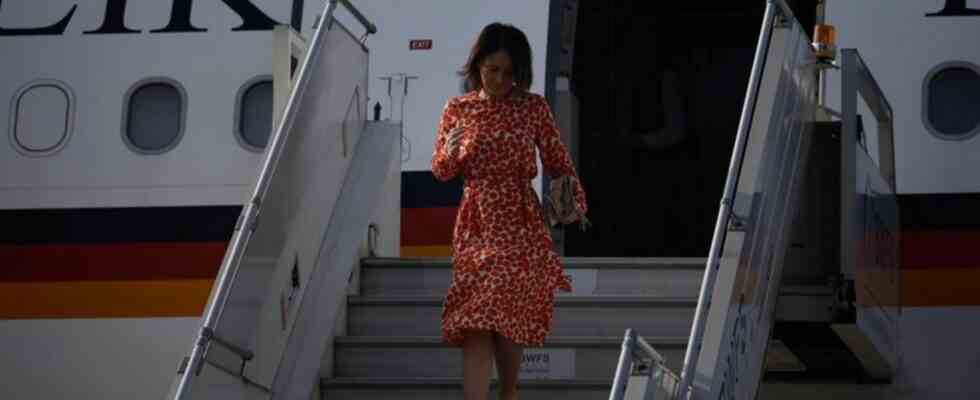foreign policy
Baerbock in Ethiopia – grain, Russia and China subjects
Against the background of the food crisis, Federal Foreign Minister Annalena Baerbock made a two-day visit to Ethiopia. (icon image) photo
© Carsten Koall/dpa
The Foreign Minister and her French counterpart’s trip to the Horn of Africa is about the peace process in the country. The people there suffer from violence and food shortages.
Foreign Minister Annalena Baerbock (Greens) has begun a two-day visit to Ethiopia against the background of the food crisis being forced by Russia. In the capital, Addis Abbeba, the Greens politician met with President Sahle-Work Zewde for talks. Sahle-Work has been the country’s first female president since 2018. Baerbock was accompanied on the visit by French Foreign Minister Catherine Colonna.
Meetings were also planned with Prime Minister Abiy Ahmed, Foreign Minister Demeke Mekonnen and Justice Minister Gedion Timotheos. Baerbock and Colonna also want to visit a UN World Food Program grain warehouse outside of Addis Ababa, where grain delivered from Ukraine is stored.
One of the poorest countries in the world
Ethiopia is the second most populous country in Africa after Nigeria and one of the poorest countries in the world. After the failure of the fifth rainy season in a row, there is a dramatic drought. Because of the high dependency on wheat and fertilizers from Ukraine and Russia, experts expect the situation to deteriorate further as a result of the Russian war of aggression in Ukraine.
Prime Minister Abiy received the Nobel Peace Prize in 2019 partly because of his policy of reconciliation with long-term rival and northern neighbor Eritrea. However, during Abiy’s tenure, ethnic tensions and conflicts intensified in the multi-ethnic state with a population of around 120 million.
Peace agreement in the Tigray conflict
Ethiopia’s government signed a peace agreement with the Tigray People’s Liberation Front (TPLF) in November. According to the UN, several hundred thousand people have died in the fighting since November 2020. The TPLF had held regional elections in the northern part of the region despite being banned from the capital Addis Ababa.

